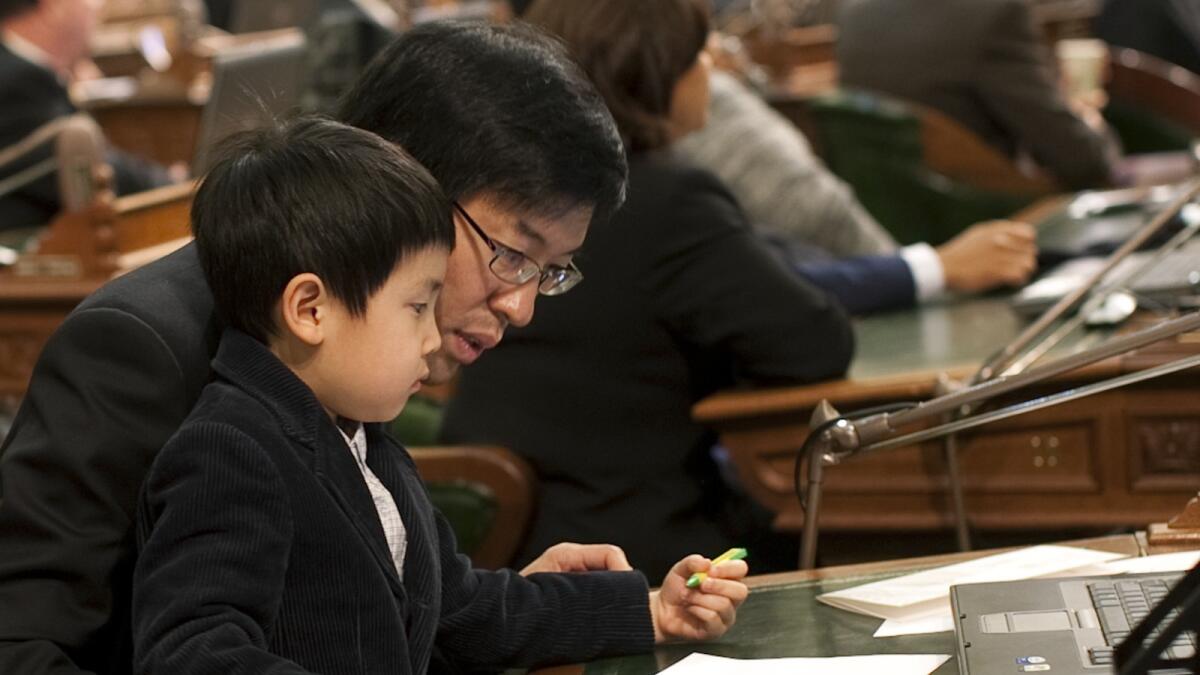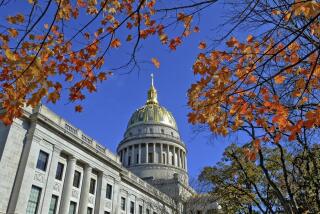California Gov. Jerry Brown appears open to restricting vaccine waivers

Reporting From SACRAMENTO — Gov. Jerry Brown, who preserved religious exemptions to state vaccination requirements in 2012, on Wednesday appeared open to legislation that would eliminate all but medical waivers.
The governor’s new flexibility highlighted a growing momentum toward limiting vaccination exemptions partly blamed for the state’s worst outbreak of measles since 2000 and flare-ups of whooping cough and other preventable illnesses.
California Sens. Dianne Feinstein and Barbara Boxer urged state officials to reconsider California’s vaccination policies Wednesday in a letter to Health and Human Services Secretary Diana Dooley.
Brown’s spokesman, Evan Westrup, said the governor “believes that vaccinations are profoundly important and a major public health benefit, and any bill that reaches his desk will be closely considered.”
Earlier, five lawmakers had said they would introduce legislation that would abolish all religious and other personal-beliefs exemptions for parents who do not want their children vaccinated before starting school.
Medical exemptions would remain in place for children with such conditions as allergic responses and weak immune systems, and schools would have to make their vaccination rates known to parents.
The California measles infections have spread to at least 119 people in eight states and Mexico, with 103 of the cases in California. The first cases were tied to workers or visitors at Disneyland.
Currently, 13,592 California kindergarten students have waivers due to their parents’ personal beliefs; 2,764 of those were based on religious beliefs, state health statistics show.
“There are not enough people being vaccinated to contain these dangerous diseases,” said state Sen. Richard Pan (D-Sacramento), a pediatrician and one of the bill’s authors. “We should not wait for more children to sicken or die before we act.”
State Sen. Ben Allen (D-Santa Monica), a co-author, said his district included pockets where many parents have elected not to immunize their children. He said his father had polio.
Matthew B. McReynolds of the Pacific Justice Institute, a conservative Sacramento-based organization that advocates for parental rights and religious freedoms, said removing the exemptions would be an overreaction and a dismissal of legitimate concerns about vaccines by some parents.
“It’s concerning to me that the measles outbreak seems to have prompted some hysteria,” he said, “and this seems like a pretty sweeping approach to what really is a very limited problem that could be addressed in other ways.”
In 2012, Brown signed legislation that restricted personal-belief exemptions by requiring that parents be counseled by healthcare providers on the risks of not being vaccinated.
The governor’s office says that since the bill took effect, those exemptions have decreased by nearly 20%, from 3.15% of children in the 2013-14 school year to 2.54% in 2014-15.
Brown was criticized by some health experts, however, for exempting parents with religious objections from meeting with a medical professional.
On Wednesday, Brown’s representatives would not directly address whether the religious exemption should be repealed or maintained, but they noted that those are claimed by only about 0.5% of kindergarten students.
Pan said he was open to discussion on the issue as the legislation proceeds.
Although all 50 states require vaccinations for children starting school, only about 20 states allow waivers based on personal beliefs. Almost all states grant religious exemptions, except for two: Mississippi and West Virginia.
Mississippi has the nation’s highest measles immunization rate for kindergarten students, according to the U.S. Centers for Disease Control and Prevention: 99.7% for the 2013-14 kindergarten class. West Virginia’s rate was also high — 96.1%, above the national median of 94.7%. California’s rate that year was 92.3%.
California has long been criticized by health experts for making exemptions easy, which allowed too many children into preschool and kindergarten without vaccines.
For many years, the percentage of kindergarten students with vaccine exemptions on file due to a parent’s beliefs was small — less than 1% from the fall of 1978 to the fall of 2000.
But the rate has risen steadily alongside the anti-vaccine movement, reaching a high of 3.15% in the fall of 2013 before dipping to 2.54% last fall.
Studies show a related rise in the rates of infectious disease.
Twitter: @mcgreevy99, @ronlin
More to Read
Sign up for Essential California
The most important California stories and recommendations in your inbox every morning.
You may occasionally receive promotional content from the Los Angeles Times.












